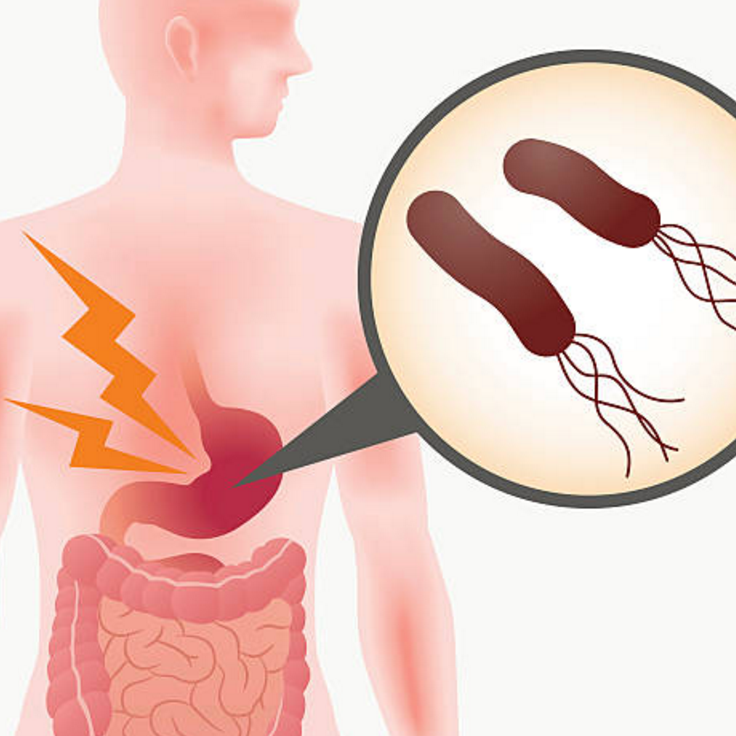Clostridioides difficile (C.difficile) previously known as Clostridium difficile is a bacteria that is found in the human gastrointestinal tract. This is a type of bacteria that forms spores. Spores are like defensive shells that protect the bacteria from dying. C. difficile is one of the well-known spore-forming bacteria that has made eradication of the bacteria very challenging. When spore-forming bacteria encounter adverse conditions in extreme environmental change like high or low temperatures, disinfectants or anti-bacterial agents, they end up forming spores and entering a dormant stage. Some bacteria can stay in the dormant stage for years. The bacteria emerge from the spores when the environment is inhabitable and the conditions are suited to its survival.
Due to its spore-forming capabilities C. difficile has been able to withstand difficult environments like those typically found in hospitals where anti-bacterial precautions are practised meticulously. As a result, many people become infected with C. difficile and the bacteria implants in the gastrointestinal tract. Here it produces toxins which cause diarrhoea and many other symptoms that can end up being life-threatening, like the toxic megacolon which needs emergency surgery.
It is widely believed C. difficile is acquired through faecal-oral transmission. This happens when an infected person discharges C. difficile during an episode of diarrhoea and due to improper hygiene practices, the bacteria and its spores are distributed on surfaces like handrails, door handles, buttons in the lift etc. If people touch these surfaces and consume food without the proper hygiene practices they risk consuming the bacteria and getting infected.
Intake of antibiotics is also believed to play a significant role as the natural gut flora resident in the bowel that can suppress the growth of C. difficile are destroyed by the antibiotics. Consequently, the good bacteria is depleted while C. difficile survives due to the formation of spores.
Therapies for C. difficile infections
Limiting antibiotics and preserving the microbial flora of the intestines works in controlling the expansion and effects of C. difficile.
Antibiotics, antiprotozoals and other treatments including probiotics and antibodies (Anti-C. difficile globulin) have been used singly or in combination with varying degrees of success in treating C. difficile infection. In extreme cases, where complications of C. difficile (such as fulminant colitis or toxic megacolon) threaten the patient’s life, surgery may be needed. Although surgery removes the affected segments of the colon, it does not remove the underlying C. difficile infection.
Faecal microbiota implantation (FMT) introduces healthy microbial flora (either cultured in the lab or from another healthy human subject) into the colon. It can be delivered through many means including colonoscopy or by enema, thus, bypassing the acidic environment of the stomach. Though the name sounds undesirable, this therapy has been found to be a safe and efficacious treatment for C. difficile infection in numerous studies1,2 although it is yet to be approved on a widespread scale3,4.
Further Reading
1 Cammarota, G., Gianluca, I. & Gasbarrini, A. (2014). Fecal Microbiota Transplantation for the Treatment of Clostridium difficile Infection: A Systematic Review. Journal of Clinical Gastroenterology, 48(8): 693-702. Doi: 10.1097/MCG.0000000000000046
Link to Publication: https://journals.lww.com/jcge/Abstract/2014/09000/Fecal_Microbiota_Transplantation_for_the_Treatment.11.aspx
2 Drekonja, D., Reich, J., Gezahegn, S., Greer, N., Shaukat, A., MacDonald, R., Rutks, I. & Wilt, T.J. (2015). Fecal Microbiota Transplantation for Clostridium difficile Infection: A Systematic Review. Annals of Internal Medicine, 162(9): 630-638. Doi: 10.7326/M14-2693
Link to Publication: https://www.acpjournals.org/doi/pdf/10.7326/M14-2693
4 Therapeutic Goods Administration (TGA). (2020). Faecal microbiota transplant (FMT) products regulation, Australian Government Department of Health. Page accessed 9th December, 2020.
Link to publication: https://www.tga.gov.au/products/biologicals-blood-and-tissues-and-advanced-therapies/biologicals/faecal-microbiota-transplant-products-regulation
5 Trubiano, J.A., Cheng, A.C., Korman, T.M., Roder, C., Campbell, A., May, M.L.A., Blyth, C.C., Ferguson, J.K., Blackmore, T.K., Riley, T.V. & Athan, E. (2016). Australasian Society of Infectious Diseases updated guidelines for the management of Clostridium difficile infection in adults and children in Australia and New Zealand, Internal Medicine Journal. Doi: https://doi.org/10.1111/imj.13027
Link to publication: https://onlinelibrary.wiley.com/doi/full/10.1111/imj.13027

